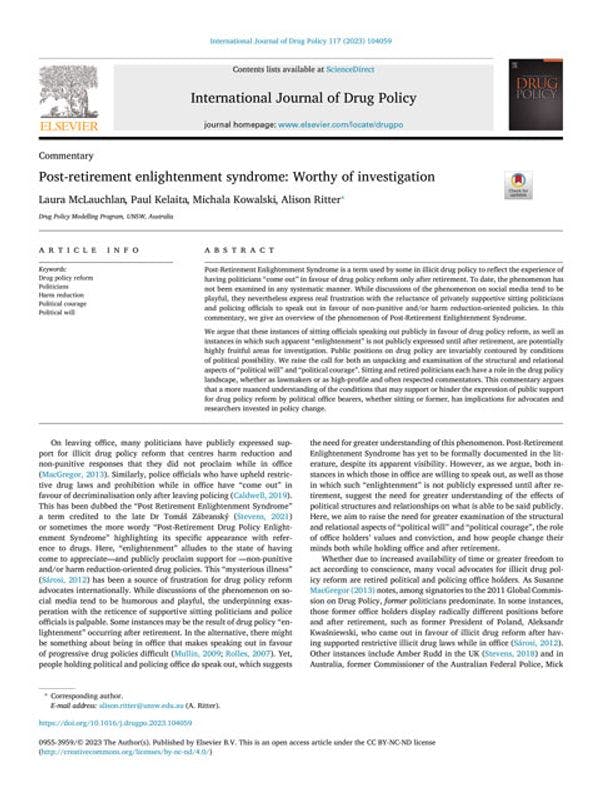Síndrome de progresismo posjubilación: Digno de ser investigado
McLauchlan et al. exploran la recurrencia con la cual los políticos expresan su apoyo a la reforma de políticas sobre drogas sólo después de dejar sus cargos, lo que indica la necesidad de estudiar más de cerca los factores que influyen el respaldo público. Más información, en inglés, está disponible abajo.
Post-Retirement Enlightenment Syndrome is a term used by some in illicit drug policy to reflect the experience of having politicians “come out ”in favour of drug policy reform only after retirement. To date, the phenomenon has not been examined in any systematic manner. While discussions of the phenomenon on social media tend to be playful, they nevertheless express real frustration with the reluctance of privately supportive sitting politicians and policing officials to speak out in favour of non-punitive and/or harm reduction-oriented policies. In this commentary, we give an overview of the phenomenon of Post-Retirement Enlightenment Syndrome.
We argue that these instances of sitting officials speaking out publicly in favour of drug policy reform, as well as instances in which such apparent “enlightenment ”is not publicly expressed until after retirement, are potentially highly fruitful areas for investigation. Public positions on drug policy are invariably contoured by conditions of political possibility. We raise the call for both an unpacking and examination of the structural and relational aspects of “political will ”and “political courage ”. Sitting and retired politicians each have a role in the drug policy landscape, whether as lawmakers or as high-profile and often respected commentators. This commentary argues that a more nuanced understanding of the conditions that may support or hinder the expression of public support for drug policy reform by political office bearers, whether sitting or former, has implications for advocates and researchers invested in policy change.
